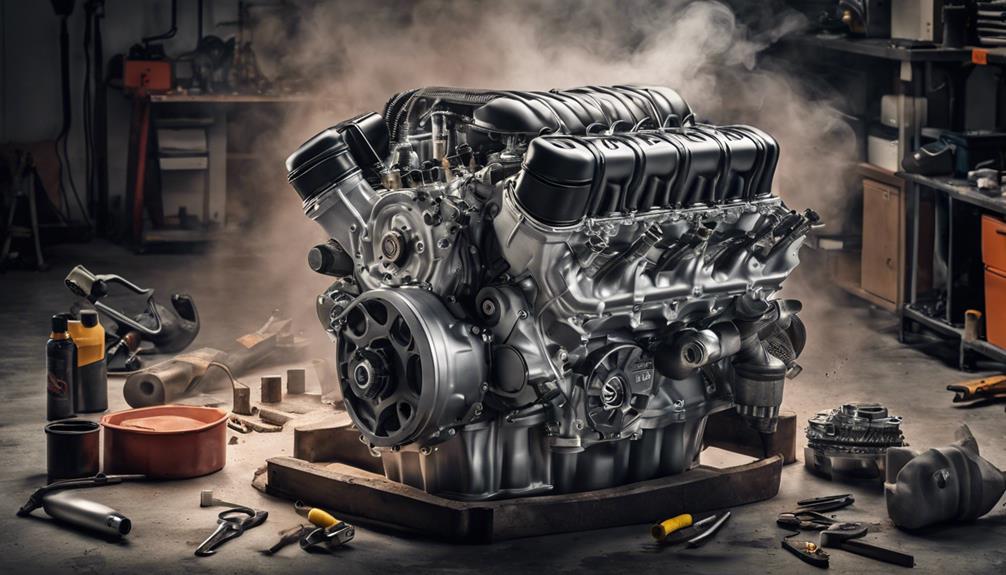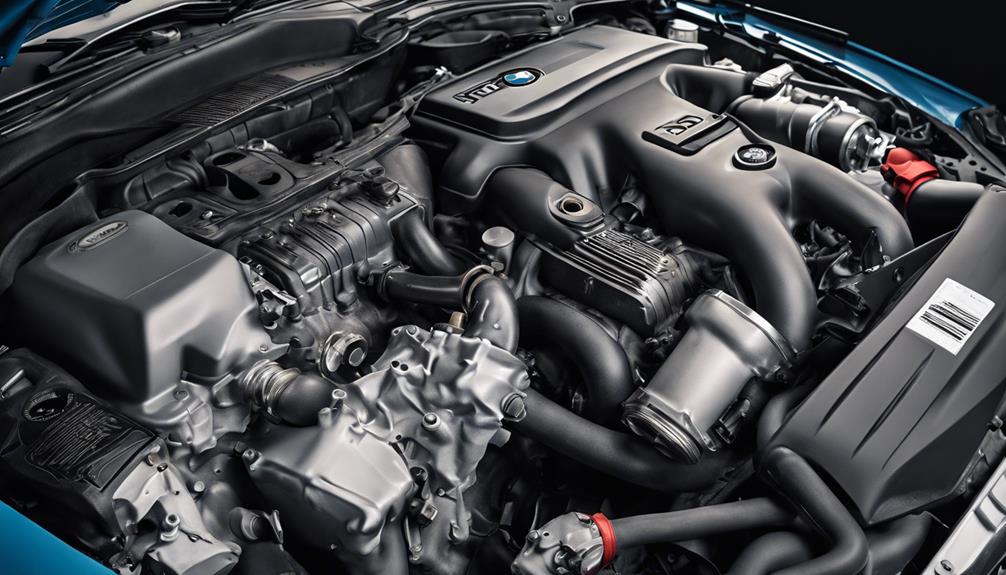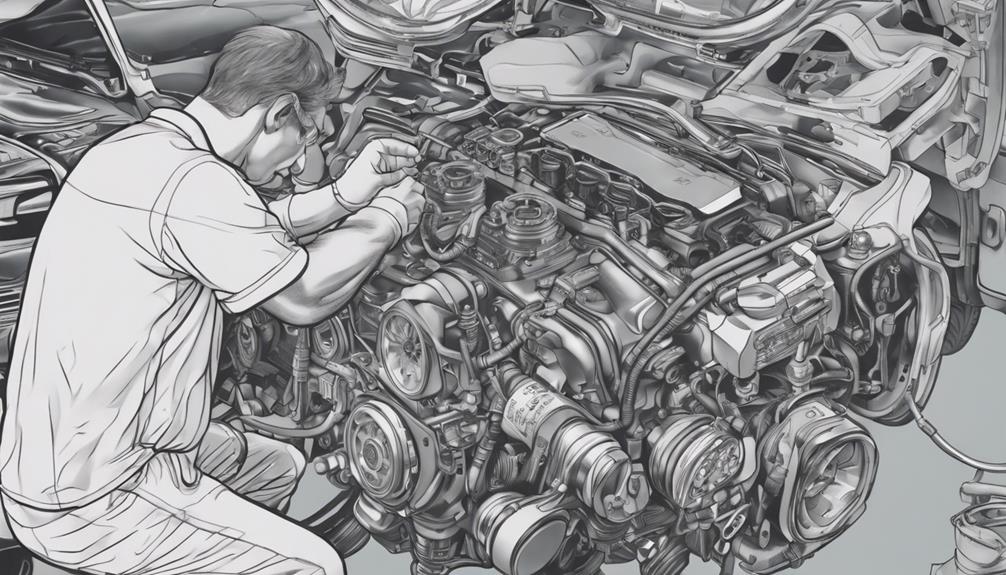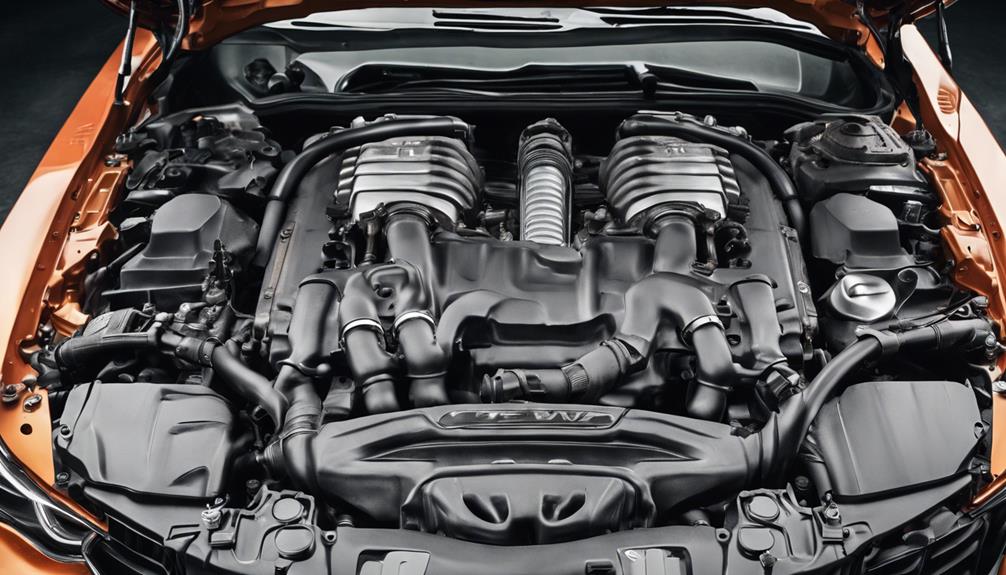If you own a BMW 328i, you might run into oil leaks, coolant seepage, lifter tick noises, delicate hoses, and VANOS solenoid troubles that can affect your car's performance and gas mileage. These issues are par for the course in the 328i world. Keep these hiccups in mind as you navigate the world of BMW ownership.
Key Takeaways
- Oil leaks and valve cover gasket deterioration require immediate attention for optimal performance.
- Coolant leaks, especially in N52/N51 engines, can be prevented with aluminum flange upgrades.
- Lifter tick noises may need thicker oil or engine revving, necessitating regular maintenance.
- Brittle hoses should be upgraded to prevent unexpected coolant leaks, requiring routine inspection.
- VANOS solenoid issues impact engine performance and fuel efficiency, warranting costly repairs and regular maintenance.
Oil Leaks

If you're a BMW 328i owner, dealing with oil leaks can be a common headache that requires prompt attention to maintain your car's performance and reliability. One of the main culprits for oil leaks in the BMW 328i is the valve cover gasket. This vital component is responsible for sealing the valve cover to the cylinder head, preventing oil from leaking out. Over time, the gasket can deteriorate, leading to oil seepage and potential drips. Addressing this issue promptly is crucial to prevent oil loss and maintain the best functioning of your BMW 328i.
When facing oil leaks in your BMW 328i, seeking high-quality auto repair is paramount. Experienced technicians can diagnose the source of the leak, whether it be the valve cover gasket, oil filter housing gasket, oil pan gasket, or rear main seal, and provide effective solutions. By proactively addressing oil leaks and investing in professional repairs, you can guarantee the longevity and performance of your beloved BMW 328i.
Coolant Leaks
Experiencing coolant leaks in your BMW 328i can be a frustrating issue that demands immediate attention to guarantee peak performance and prevent potential engine damage. Commonly found in BMW 328i models with N52/N51 engines, these leaks often originate from the coolant hose connected to the block and the notorious 'Mickey Mouse' flange.
Over time, the flanges can become brittle due to engine heat, resulting in coolant seepage. To combat this recurring problem, upgrading to aluminum flanges is highly recommended to fortify the system and evade future coolant leak headaches.
Keep in mind that if left unaddressed, coolant leaks may lead to other complications like the infamous lifter tick noise, which could hint at underlying coolant system issues. By proactively tackling coolant leaks in your BMW 328i with solutions like aluminum flanges, you not only safeguard the longevity and health of your vehicle but also dodge potential costly repairs down the road.
Lifter Tick Noises
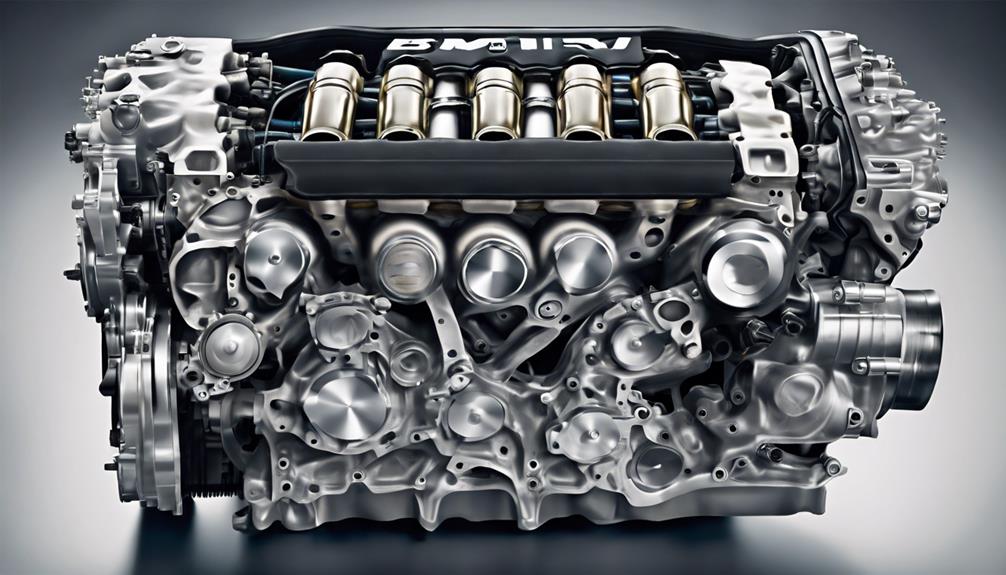
If you've noticed a faint ticking sound when you start your BMW 328i, you might be experiencing lifter tick noises. These noises can be caused by various factors such as worn out belt tensioners or a brittle upper radiator hose.
To tackle this issue, consider using thicker oil or revving the engine to help minimize the ticking noise and guarantee your engine runs smoothly.
Causes of Ticking
Lifter tick noises in BMW 328i models can often be attributed to the engine's lifters when the car is started after a period of rest. These ticking sounds may hint at underlying issues with the lifters in the engine.
To address this, consider using thicker oil or revving the engine at around 3,000 RPM to potentially reduce these noises.
Remember, regular maintenance is key to preventing lifter tick noises; keep an eye on parts like pulleys and tensioners that may wear out over time.
Solutions for Noise
To address the persistent ticking noises in your BMW 328i, exploring effective solutions for mitigating lifter tick issues becomes crucial. When dealing with lifter tick noise, quick action can prevent further damage to your car's engine. Here are some practical solutions to help you silence that annoying noise:
| Solution | Description |
|---|---|
| Thicker Oil | Using denser oil can provide better lubrication to the lifters, reducing noise. |
| Rev Engine | Revving the engine at 3,000 RPM can help dislodge air bubbles and diminish lifter tick. |
| Regular Maintenance | Scheduled upkeep and lifter inspections can catch issues early on. |
| Address Promptly | Timely attention to lifter tick noises can prevent damage and secure engine longevity. |
| Professional Assistance | Consulting a mechanic for expert help in diagnosing and resolving lifter tick issues. |
Taking these steps can help you enjoy a quieter ride and keep your BMW 328i running smoothly.
Brittle Hoses
If you own a BMW 328i, watch out for brittle hoses, particularly the upper radiator hoses in N52/N51 engines. These hoses have a tendency to become fragile over time, increasing the risk of leaks.
Regularly inspecting and possibly upgrading to more durable materials can help you avoid the headache of unexpected coolant leaks and potential engine damage.
Hose Material Quality
When it comes to the common problems with BMW 328i, one glaring issue stands out – the susceptibility of hose material quality to brittleness, leading to potential leaks and engine performance issues.
- Opt for higher-quality hoses to reduce the risk of brittleness.
- Regularly inspect hoses for signs of wear and tear.
- Consider upgrading to more durable materials for longevity.
- Keep an eye on coolant levels to catch leaks early.
- Address any brittle hoses promptly to prevent overheating mishaps.
Maintenance Recommendations
Considering the common issues with brittle hoses in BMW 328i models, prioritizing proactive maintenance can greatly mitigate potential leaks and engine complications. Regularly inspecting and replacing brittle hoses, especially those connected to the block and the 'Mickey Mouse' flange, is vital for the longevity of your vehicle. Upgrading to aluminum flanges can prevent coolant leaks caused by the original flanges becoming fragile due to engine heat. Additionally, addressing problems with upper radiator hoses and power steering pulleys can prevent unexpected breakdowns. To maintain peak performance, replacing belt tensioners and serpentine belt tensioners is recommended as they can also become fragile over time. Stay ahead of these issues to keep your BMW 328i running smoothly.
| Maintenance Task | Importance Level | Recommended Frequency |
|---|---|---|
| Inspect & Replace Hoses | High | Every 30,000 miles |
| Upgrade to Aluminum Flanges | Medium | When replacing hoses |
| Replace Power Steering Pulleys | High | Every 50,000 miles |
VANOS Solenoid Issues
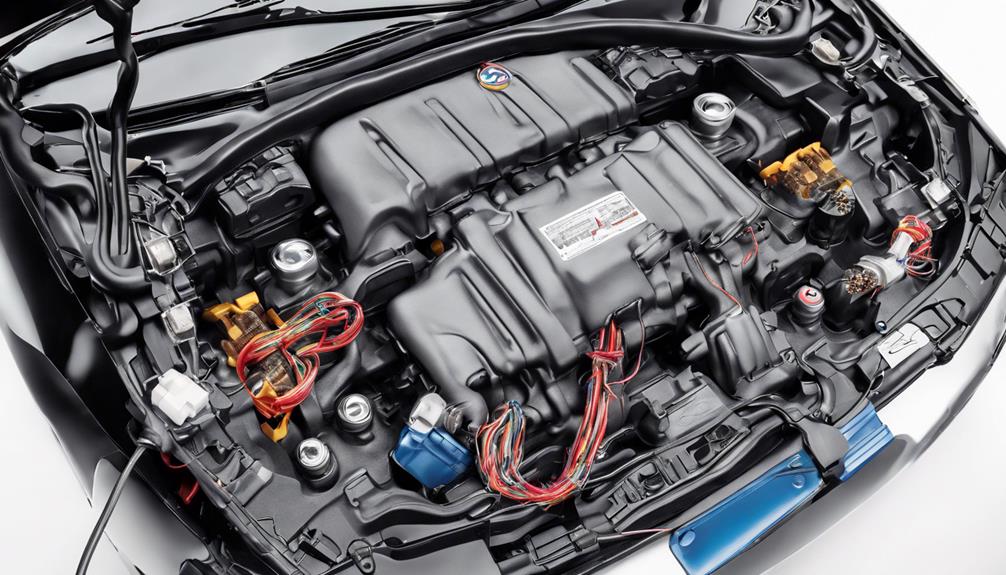
VANOS Solenoid Issues in BMW 328i models can greatly impact engine performance and fuel efficiency. Here are some key points to keep in mind:
- VANOS solenoids in BMW 328i models are prone to failure due to their intricate design.
- Problems with VANOS solenoids can lead to rough engine performance and decreased fuel efficiency.
- BMW 328i owners may experience engine misfires and hesitations when VANOS solenoids fail.
- Replacing VANOS solenoids can be a complex and costly repair in BMW 328i vehicles.
- Regular maintenance and inspections can help prevent major issues with VANOS solenoids in BMW 328i models.
When your VANOS solenoids start acting up, your BMW 328i mightn't deliver the performance and efficiency you expect. Stay ahead of the game by keeping an eye on these significant components. Remember, a little maintenance today can save you from a big headache tomorrow.
Overall Reliability
The reliability of the BMW 328i is a key factor that sets it apart within its class of vehicles. While it may not boast top-tier reliability ratings, scoring 2.5 out of 5 by RepairPal and ranking 30th out of 32 car brands regarding reliability, the BMW 328i still manages to hold its ground as one of the more dependable BMW models. One of the drawbacks to take into account is the higher-than-average annual repair costs associated with the BMW 328i. Common problems like timing chain issues and occasional fuel system failures can contribute to these costs. Despite these challenges, the BMW 328i remains a popular choice due to its consistent design over the years.
| Aspect | Details |
|---|---|
| Reliability Ratings | Average, rated 2.5 out of 5 by RepairPal |
| Annual Repair Costs | Higher compared to most cars |
| Common Problems | Timing chain problems, occasional fuel system failures |
Frequently Asked Questions
Is a BMW 328i a Reliable Car?
Sure thing! A BMW 328i can be a reliable car, but it's crucial to stay on top of maintenance. Regular servicing and addressing issues promptly can help guarantee a smooth driving experience with this model.
What Is the Common Problem With 328i?
When you drive a BMW 328i, be mindful of oil leaks at gaskets, coolant leaks near the block, lifter tick noise, and potential VANOS solenoid issues. Regular upkeep is key to avoiding these common headaches.
What Is the Life Expectancy of a 328i?
With proper maintenance, a BMW 328i can typically last around 200,000 to 250,000 miles. Regular servicing and timely repairs are key. Taking care of critical components like the engine and transmission can greatly extend its lifespan.
Why Are 328i so Cheap?
You're looking for why 328i are cheap. Decipher the mystery: high depreciation, hefty repair costs, market saturation, perceived risk, and fierce competition lead to those wallet-friendly prices. Choose wisely, savvy shopper.






